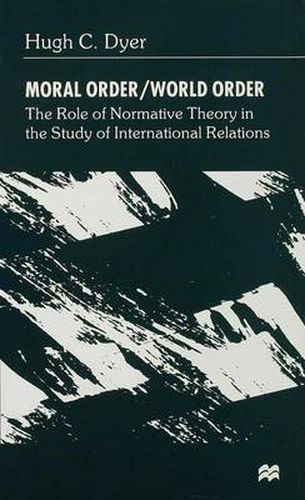Readings Newsletter
Become a Readings Member to make your shopping experience even easier.
Sign in or sign up for free!
You’re not far away from qualifying for FREE standard shipping within Australia
You’ve qualified for FREE standard shipping within Australia
The cart is loading…






This title is printed to order. This book may have been self-published. If so, we cannot guarantee the quality of the content. In the main most books will have gone through the editing process however some may not. We therefore suggest that you be aware of this before ordering this book. If in doubt check either the author or publisher’s details as we are unable to accept any returns unless they are faulty. Please contact us if you have any questions.
Moral Order/World Order argues for the centrality of normative theory in the study of international relations. Two themes develop, each reflecting opposing pairs: fact/value, is/ought, description/prescription, feasibility/desirability. The first theme concerns the epistemological framework provided by a normative account. The second theme concerns the political conditions of knowledge which determine the role of different theories, indicating the need for adaptation of traditional normative scholarship, overcoming the separation of ethics from politics which has so far limited its role.
$9.00 standard shipping within Australia
FREE standard shipping within Australia for orders over $100.00
Express & International shipping calculated at checkout
This title is printed to order. This book may have been self-published. If so, we cannot guarantee the quality of the content. In the main most books will have gone through the editing process however some may not. We therefore suggest that you be aware of this before ordering this book. If in doubt check either the author or publisher’s details as we are unable to accept any returns unless they are faulty. Please contact us if you have any questions.
Moral Order/World Order argues for the centrality of normative theory in the study of international relations. Two themes develop, each reflecting opposing pairs: fact/value, is/ought, description/prescription, feasibility/desirability. The first theme concerns the epistemological framework provided by a normative account. The second theme concerns the political conditions of knowledge which determine the role of different theories, indicating the need for adaptation of traditional normative scholarship, overcoming the separation of ethics from politics which has so far limited its role.